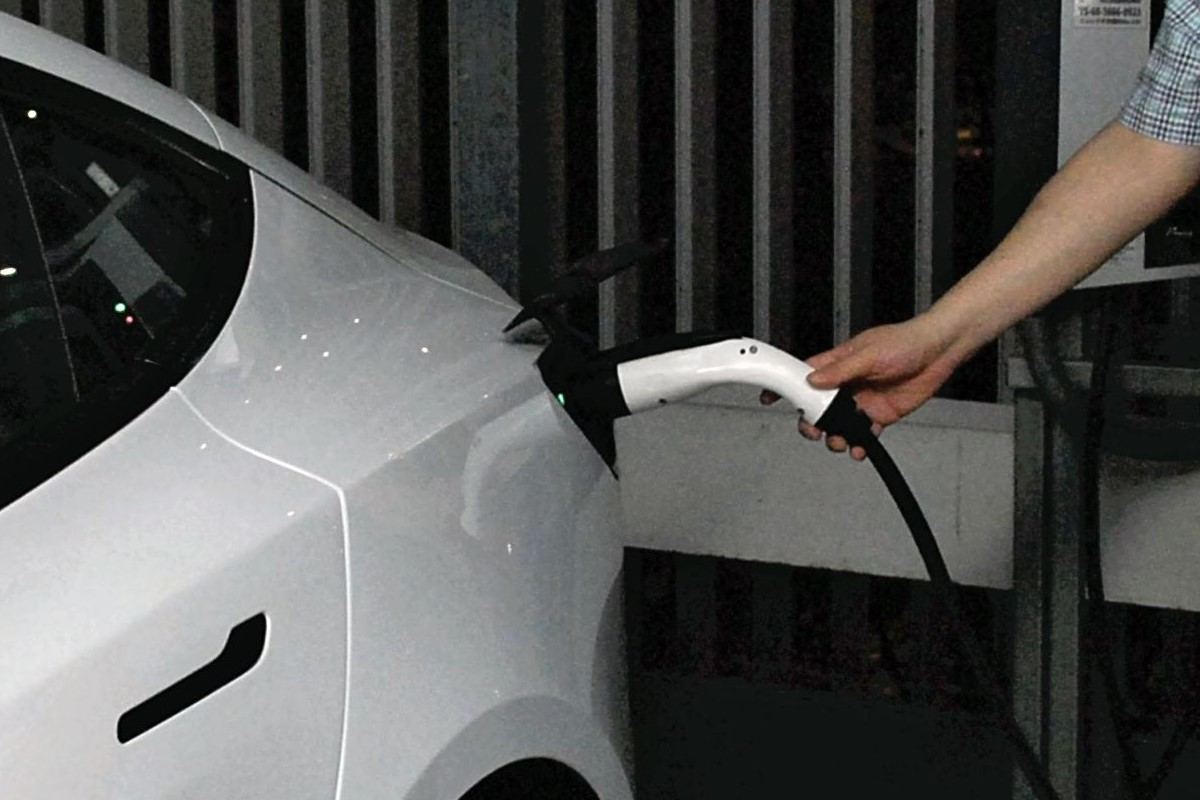Real Estate Giants Charge Ahead with EV Charger Installation Efforts; Strong Growth in Demand Expected

An electric vehicle is charged at a condominium in June 2023.
6:00 JST, July 3, 2024
Real estate giants’ efforts to install electric vehicle chargers at condominiums are heating up, with hopes high that demand for the chargers will grow as EV usage spreads.
The government, anticipating such growth, is targeting a seven-fold increase in chargers at housing complexes and other places by 2030.
Sumitomo Realty & Development Co. said Monday that it and Tokyo Electric Power Company Holdings, Inc. will jointly install EV chargers as a standard at new condominiums completed in 2026 or later. The chargers will come from Tokyo-based e-Mobility Power Co., which runs them at commercial facilities, expressways and other locations.
Nomura Real Estate Development Co. announced in summer last year that it would install EV chargers at 30% of parking spaces in its flagship condominium brand, Proud. Tokyu Land Corp. has also been standardizing EV chargers at surface parking lots.
Chargers are likely to be installed at existing condominiums, too. Since a consensus of condominium residents is required for the change, the Land, Infrastructure, Transport and Tourism Ministry in June revised the standard rules for condominium management, specifying that EV chargers can be installed by a simple majority vote of the members of condominium residents’ associations.
Attention is now focused on the pace at which EVs become commonplace.
Currently, EVs account for only about 2% of new car sales in Japan. If the number of EVs on the roads falls short of expectations, operators will be stuck with only the chargers’ maintenance costs.
An official of a major real estate company said it is difficult to predict the extent to which EV chargers should be installed.
Top Articles in Business
-

Japan, Italy to Boost LNG Cooperation; Aimed at Diversifying Japan’s LNG Sources
-

Narita Airport, Startup in Japan Demonstrate Machine to Compress Clothes for Tourists to Prevent People from Abandoning Suitcases
-

Asics Opens Factory for Onitsuka Tiger Brand in Western Japan
-

JR Tokai, Shizuoka Pref. Agree on Water Resources for Maglev Train Construction
-

KDDI Opens AI Data Center at Former Sharp Plant in Osaka Prefecture; Facility Will Provide Google’s Gemini AI Model for Domestic Users
JN ACCESS RANKING
-

Japan Institute to Use Domestic Commercial Optical Lattice Clock to Set Japan Standard Time
-

China Eyes Rare Earth Foothold in Malaysia to Maintain Dominance, Counter Japan, U.S.
-

Man Infected with Measles May Have Come in Contact with Many People in Tokyo, Went to Store, Restaurant Around When Symptoms Emerged
-

Japan, Qatar Ministers Agree on Need for Stable Energy Supplies; Motegi, Qatari Prime Minister Al-Thani Affirm Commitment to Cooperation
-

Australian Woman Dies After Mishap on Ski Lift in Nagano Prefecture






















